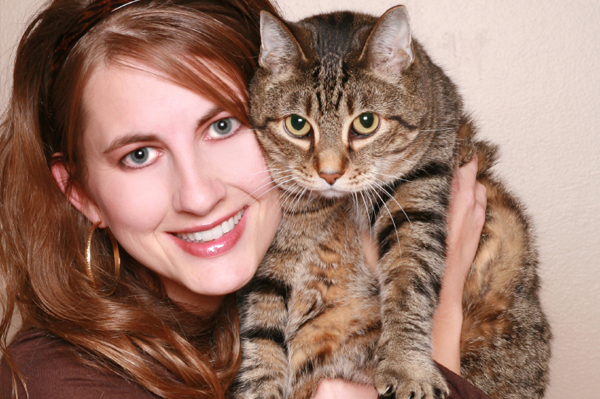If you have recently purchased a cat, or are considering doing so, it is important to educate yourself about common feline diseases and how they can be prevented. Cats that are not properly vaccinated or kept outdoors are incredibly susceptible to myriad illnesses and diseases, and it is your responsibility as a pet owner to ensure that your furry companion is protected as best you can. Read further for information on common diseases that you may come across as a cat owner.
Feline AIDS
Feline AIDS develops in cats that have contracted FIV, or the Feline Immunodeficiency Virus. It is very similar to its human counterpart, but it is important to understand that the virus cannot be passed on to humans.
Cats with AIDS and FIV may show a variety of signs and symptoms including chronic nonresponsive infections, appetite loss, breathing problems, oral infections, and chronic diarrhea. It is frequently passed from cat to cat through biting, and because of this it is very important to manage a multi-cat house carefully if one of your pets is infected.
Sadly, this disease is 100% fatal, but vaccines are now available to help prevent your cats from contracting FIV. Your vet will run a blood test before administering the vaccine. If there are stray cats near your home, it is wise to keep your animals indoors at all times to also help protect it from the virus.
Feline Leukemia
Feline leukemia, FeLV, is one of the most contagious feline diseases out there. It affects your cat’s immune system and because of this, can lead to several types of cancer and infections. Your cat may contract it by coming into contact with the feces, urine, or saliva of an infected feline. Like FIV, humans cannot contract this disease from their pets.
This is a fatal infectious virus, and because there is no cure unvaccinated cats should be kept indoors at all times. If you would like to schedule a vaccination for this disease, make an appointment with your vet to have blood tests run and the vaccine administered.
FIP
Feline Infectious Peritonitis, FIP, can take a two forms; wet and dry. Wet FIP form includes fluid in your cat’s abdomen, while dry FIP does not. If your cat shows signs of lethargy, fever, vomiting, diarrhea, and loss of appetite you should ask your vet about running a test to see if your cat has been exposed to this virus.
There is no treatment available for this disease and it is usually fatal, but some cats manage to pull through. Vaccines have been recently developed, so if you have an outdoor cat and live in an area with various wild creatures it is strongly recommended that you schedule a vet visit and consultation. As with most feline diseases, one of the best preventative measures is to keep your cat indoors.
Feline Distemper
Feline Distemper, or Cat Virus, is a highly infectious viral disease that can be passed to certain other animal species but not to humans. Normally it begins with a high fever, and some animals die at this stage. Once the fever has passed depression may set in, followed by anorexia, vomiting, and diarrhea which lead to severe dehydration.
This virus is passed very easily through all bodily secretions, and animals that have recovered from the disease can still pass it on for several months. The mortality rate for this illness is very high, and sadly the only treatments involve supportive care to help give your cat strength. Vaccines are available, however, and every domestic cat should receive one.








0comments:
Post a Comment